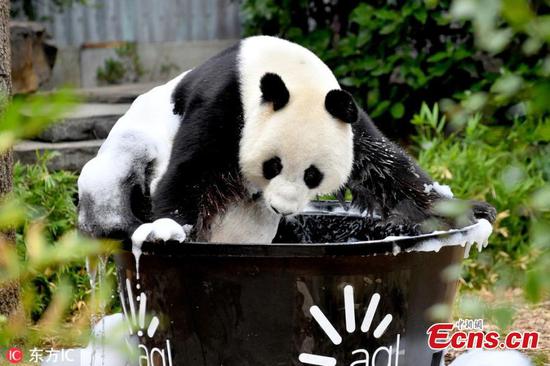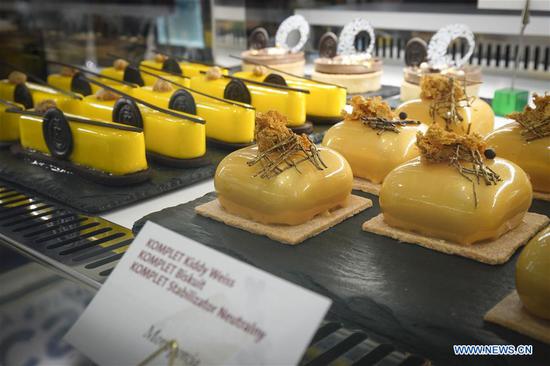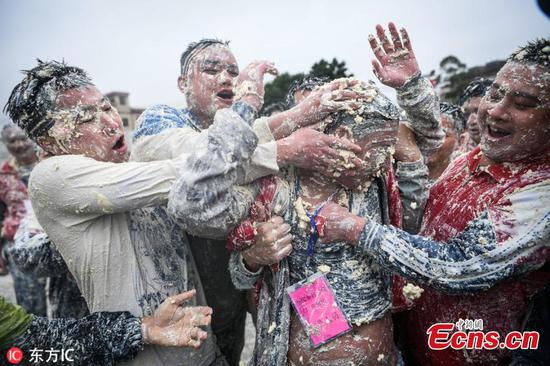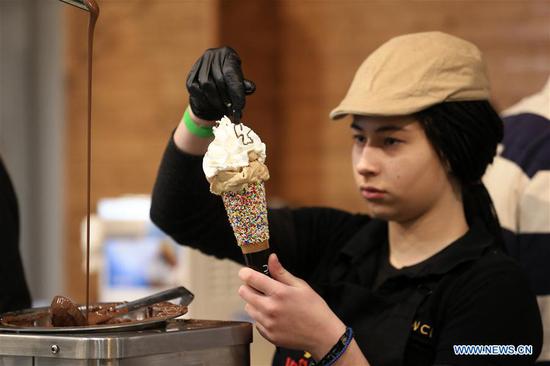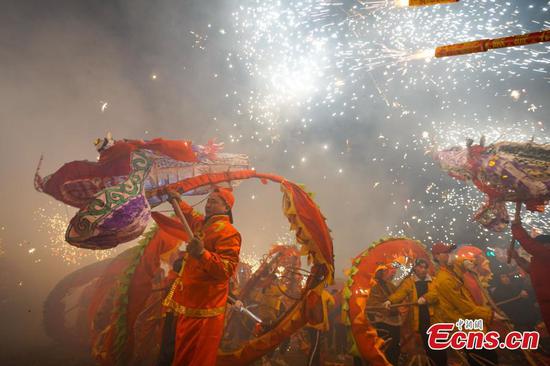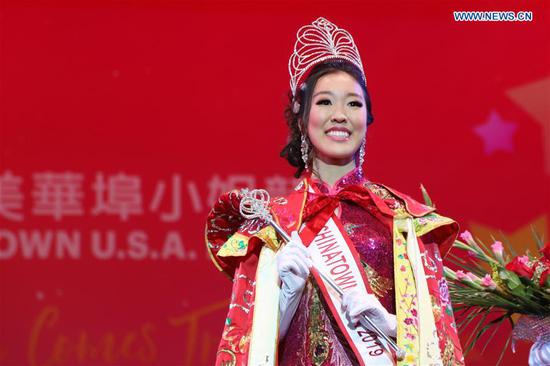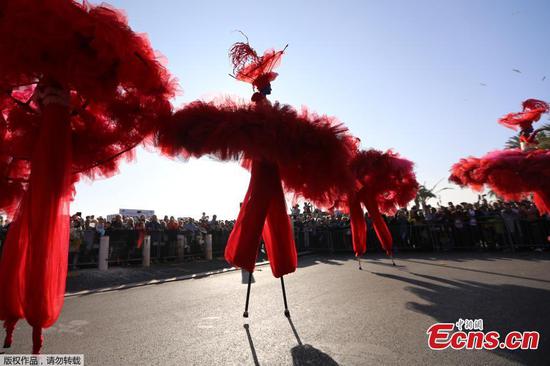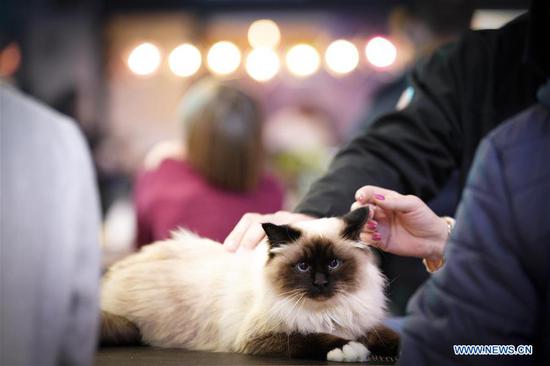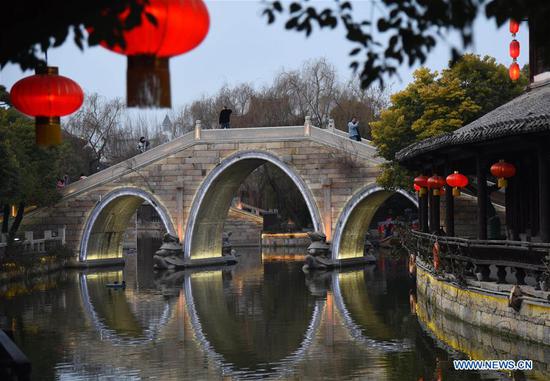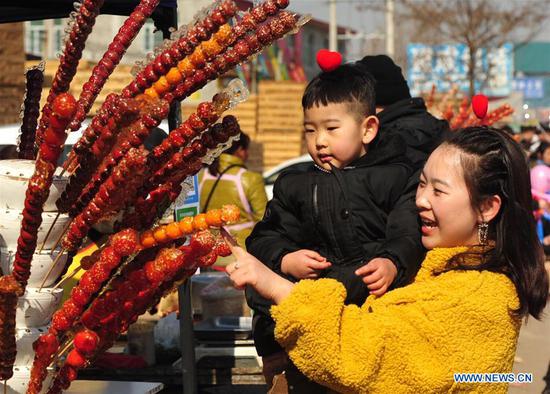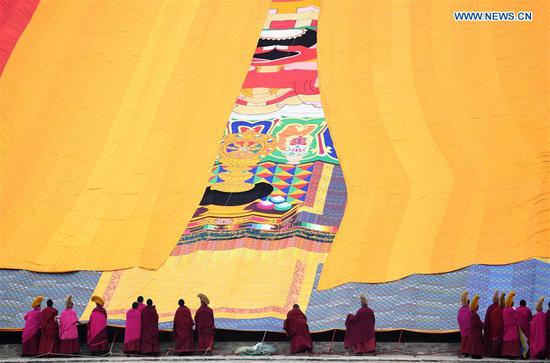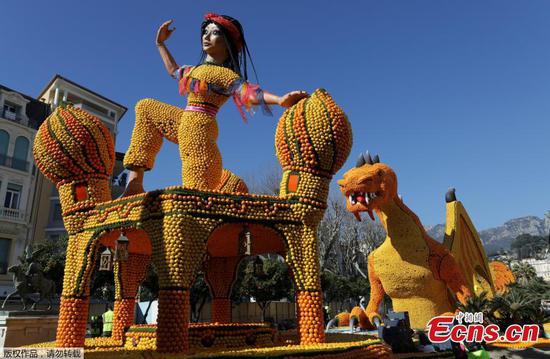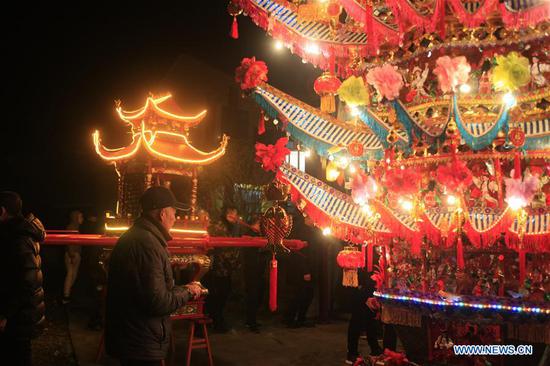Tradition can bring social stress, lawsuits and other trouble
To give or not to give? That is the question facing many Chinese regarding hongbao, or red envelopes, during Spring Festival every year.
Hongbao refers to small red packets containing money usually given by senior members of families to the young during Lunar New Year.
The token given in hopes of good luck, health and success, can, in some cases, lead to trouble, upsets and even lawsuits.
In Guangzhou, capital of Guangdong province, a court ordered the father of a 13-year-old boy to return "red packet money" given to his son.

Hongbao is given to visitors to the old town of Qiantong, Ninghai, Zhejiang province. (Photo by Zhu Xingxin/China Daily)
The son, surnamed Su, took his father to court after finding that his bank account, in which he had saved 3,000 yuan ($442) given to him as hongbao between 2014 and 2015, had been emptied in March 2016.
However, the father argued that the money was mainly given by his side of the family, and said the boy's mother, whom he divorced years ago, was taking advantage of a change in custody arrangements to take the money for herself.
Su's mother was awarded custody of the boy in April 2016 and he has lived with her ever since.
According to the court ruling, hongbao money belongs to the recipient, regardless of his or her age. Although parents are entitled to help children manage their money, they are not allowed to spend or otherwise use it without the child's consent.
Therefore, the court ruled in favor of the son and asked the father to give back 3,045 yuan, including interest.
Ye Shibao, with the Etr Law Firm in Guangzhou, said: "Children enjoy civil rights, just like adults. Given that the red packet money belongs to the child, the father should transfer his son's money to the mother, who is the guardian, for her to manage on behalf of the boy."
A divorce trial in Beijing has also just ruled that hongbao money should belong to a child, according to a release on Thursday from Chaoyang District People's Court.
In this case, the couple had saved tens of thousands of yuan of hongbao money in the father's bank account since the birth of their 8-year-old son.
When the couple decided to divorce, with the mother taking custody of the child, the father asked for the son's hongbao money to be divided as the couple's joint property, and took his proposal to the court.
The father's claim was denied, with Ni Shixin, assistant to the judge in the Shuangqiao division of the Chaoyang court, explaining that although the money had been saved under the parents' names, it remained the asset of the child, and should not be divided upon divorce.
Education funding
There are some unspoken rules regarding how hongbao money should be given, which can vary from place to place.
Jin Luyi, 10, received 12 red packets this year-the majority of them containing 500 yuan, a typical gift for a family in Shanghai.
The girl said she had accumulated nearly 200,000 yuan in such money since birth and it was kept in an account under her name.
"I haven't figured out what to do with it. Dad sometimes borrows some money from me, but he returns it. Maybe I can buy a couple of computers and create some small video games one day," she said.
Jin's parents said they hoped the money could be used to fund their daughter's college education-a common desire in most families who are finding that schooling is becoming increasingly expensive.
Lu Liping, Jin's mother, who is responsible for noting the amount her daughter receives in each red packet, said, "For every yuan she receives, we hand out an equal amount to others.
"Usually it's 500 yuan among relatives, and the closest ones, such as grandfather and grandmother, give more in hongbao," she said, adding that instead of giving back such money, she sometimes also buys toys or gold coins as gifts instead.
The essential rule in giving hongbao is give-and-take.












